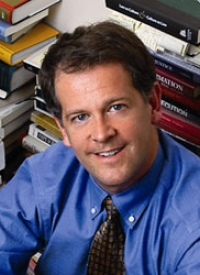GOP Senate leaders have vowed that Obama’s appointee—regardless of judicial qualifications, political leanings, age, race, or gender—will not receive a hearing in the Judiciary Committee or a vote in the Senate. Republicans leaders have also argued that the next president should select the next Supreme Court justice, and thus who swings the balance of judicial and political power on hot-button issues such as immigration, reproductive rights, affirmative action, and campaign finance.
While the Senate’s rationale for its preemptive refusal to hold a vote on Obama’s appointment has no precedent in law, such an action would not be unconstitutional based on the Constitution’s wording, agreed Fordham Law School Constitutional Law Professors Martin Flaherty, Abner Greene, and Thomas Lee. However, whether the course of action favored by Senate Majority Leader Mitch McConnell (R-Ky.) and other party leaders keeps with the law’s spirit is a complicated matter that depends on one’s interpretation of the document’s text, the professors added.
Obama’s nomination of Garland, the chief judge of the U.S. Court of Appeals for the District of Columbia Circuit, will further test the GOP Senate’s stance. Garland received the support of seven sitting Senate Republicans en route to receiving confirmation to his current post in 1997.
Professor Greene praised the nomination of Garland, whom he has known personally and professionally since the nominee’s time at Arnold & Porter in the early 1980s. He described Garland as “brilliant, kind, moderate, and thoughtful,” and highlighted his Harvard Law Review piece “Deregulation and Judicial Review” as proof of his legal excellence.

“He would be a terrific Supreme Court Justice,” Greene said. “It’s too bad the GOP won’t let it happen.”
The Republican Senate’s anti-vote approach is complicated, Professor Lee noted, because Garland has “a low ideological profile and respect across the aisle for his inherent moderateness and professionalism.” At age 63, Garland is two years older than Chief Justice John Roberts, a fact that perhaps will ease Republican concerns that the next justice would sit on the court for 20 to 30 years.
“Coming as it is after the Tuesday primary results, the Republican Senate leadership will have to think hard about whether to grant a hearing now or kick the can down the road with the increasingly likely prospect of a Clinton presidency and possibly a Democratic Senate in the future,” Lee continued. “I suppose if the GOP Senate leadership imagines that Trump or Cruz will win, then this logic doesn’t apply.”
A President’s Constitutional Duty?
Article II, Section 2 of the Constitution reads the president “shall nominate, and by and with the Advice and Consent of the Senate, shall appoint Ambassadors, other public Ministers and Consuls, Judges of the Supreme Court, and all other Officers of the United States, whose Appointments are not herein otherwise provided for …”
To best interpret the Constitution, one must evaluate the text and custom, Professor Flaherty said. The text provides for the president to nominate throughout the full term in office—until Jan. 20, 2017, in this case—and for the Senate to make “a good faith consideration of that nominee.”
“It’s entirely appropriate for a Republican Senate to act as a moderating force on a potential Democratic nominee and vice versa,” Flaherty said. “One of the purposes of separating powers was that when the country was divided that division would theoretically get reflected in the branches of government and houses of Congress.”
However, the view of McConnell and others that Obama does not have the power during his elected term to nominate a justice to fill a vacancy is “certainly anti-constitutional,” Flaherty said.

Professor Lee echoed Flaherty’s comments calling the GOP Senate’s decision not to hold hearings before Obama selected a nominee as “bad politics and excessively partisan.” Republican Senators could filibuster the candidate, Lee stated, the same way Democrats filibustered Miguel Estrada, George W. Bush’s nominee for the Court of Appeals District of Columbia Circuit. However, deliberately taking no action should not be deemed unconstitutional, he underlined, because “the Constitution allows for dirty pool.”
While not unconstitutional, the GOP-controlled Senate’s decision not to vote on an Obama nominee would be “a dereliction of constitutional duty,” reasoned Professor Greene, because it would impede the third branch’s functioning capability. The issue is a complicated one, he emphasized, because the framers did not write the Senate must hold hearings or a vote, in such cases as the one unfolding after Justice Scalia’s death.
A Clash With Senate Customs?
Two hundred years of constitutional custom, Flaherty explained, reveals the president has nominated justices on at least 13 separate occasions during election years in shorter time frames than the nine-plus months Obama has until he leaves office.
Flaherty’s comment seems to indirectly address a statement made by Republican presidential candidates Ted Cruz, who said during a Meet the Press appearance, “There is a long tradition that you don’t do this in an election year.”
While Democrats have blocked Republican presidents’ judicial nominees such as Estrada and Robert Bork, who was nominated to the Supreme Court by President Ronald Reagan in 1987, Lee stated that conservatives have historically cared more about the Supreme Court’s ideological composition.
“A major part of their identity is not to let activist or progressive judges on the court,” he explained. For instance, the last time a Democratic president’s Supreme Court nominee received approval from a Republican-controlled Senate happened in 1895, when President Grover Cleveland nominated Rufus Peckham. (Before his successful nomination of Peckham, Cleveland lost two nominations—William B. Hornblower in 1893 and Peckham’s brother Wheeler in 1894—to the Senate.)
Constitutional customs can change over time, Flaherty noted, though there is no “magic number” for how many times an action must be taken before it becomes accepted as the new rule. If the Senate’s actions this year were to become the basis for a new custom regarding the president’s ability, or inability, to nominate a Supreme Court judge in an election year that would be “very unfortunate,” Flaherty said.
“It deadlocks appointments to the third branch of government,” he explained.
A Path Forward for Obama?
This deadlock has created a backlog in the lower courts in recent years, leading to longer waits to fill openings. During a two-day summit with Southeast Asian leaders in February, Obama told media members he had 14 judicial nominations pending whom the Judiciary Committee unanimously approved. He labeled the Senate “obstructionist” and stated that claims of an election year ban against Supreme Court nominations was “not in the constitutional text.”
That stalling tactics in lower courts eventually rose to the nation’s highest court should not come as a surprise, given our highly partisan political environment, Greene said.

How high will the cost be to the Supreme Court if it functions with eight members for the next year or longer?
That depends on your view of the Supreme Court’s importance, Greene said, noting critics exist on both the political right and left who view the Court as possessing too much power to shape American life.
“Development in the law in certain important areas could be slower,” Greene said, noting that when the Supreme Court is tied at 4-4, the lower court’s decision stands. It is also possible, he noted, that the Court could deny certiorari on particularly delicate cases until it is at full strength.
Over time, a prolonged stretch at a 4-4 ideological split could undermine the Court’s ability to “speak with an authoritative voice on the contentious issues of the day,” Lee surmised. In the short term, the Court’s makeup would lessen the impact of Justice Kennedy as a swing vote.
The Senate’s move to block President Obama’s nominee, and thus stop a so-called Democratic majority on the Court, will also have unintended consequences, professors predicted.
“A deadlocked Supreme Court tends to lead to more affirmances of Circuit Court rulings, in which the majorities will be by judges appointed by Democratic presidents,” Flaherty said.
A Deadlocked Supreme Court?
A deadlocked Supreme Court appears a virtual certainty for the foreseeable future. Leading Senate Republicans publicly affirmed their position to block Obama’s impending nominee after private discussions on March 10.
Given how quickly and unanimously the Republicans said they won’t hold hearings, Greene said there’s little chance the GOP will back down.
Before Obama’s nomination today, Flaherty had highlighted two routes Obama could take with his nominee: appoint someone such as Garland who would be palatable to conservatives—in essence killing them with kindness—or someone who would create the largest possible political cost, such as another highly-qualified Latino woman like Justice Sotomayor.
According to the Washington Post, Obama selected Garland over his fellow D.C. Circuit Court of Appeals Judge Sri Srinivasan, who would have been the first Asian-American and Hindu justice. As a Stanford Law graduate, Srinivasan would have also brought educational diversity to the Court, Lee said, noting its eight current members are graduates of Harvard or Yale law schools.
“At the end of the day, you want to appoint good judges,” Lee added. “Politics should not matter.”

